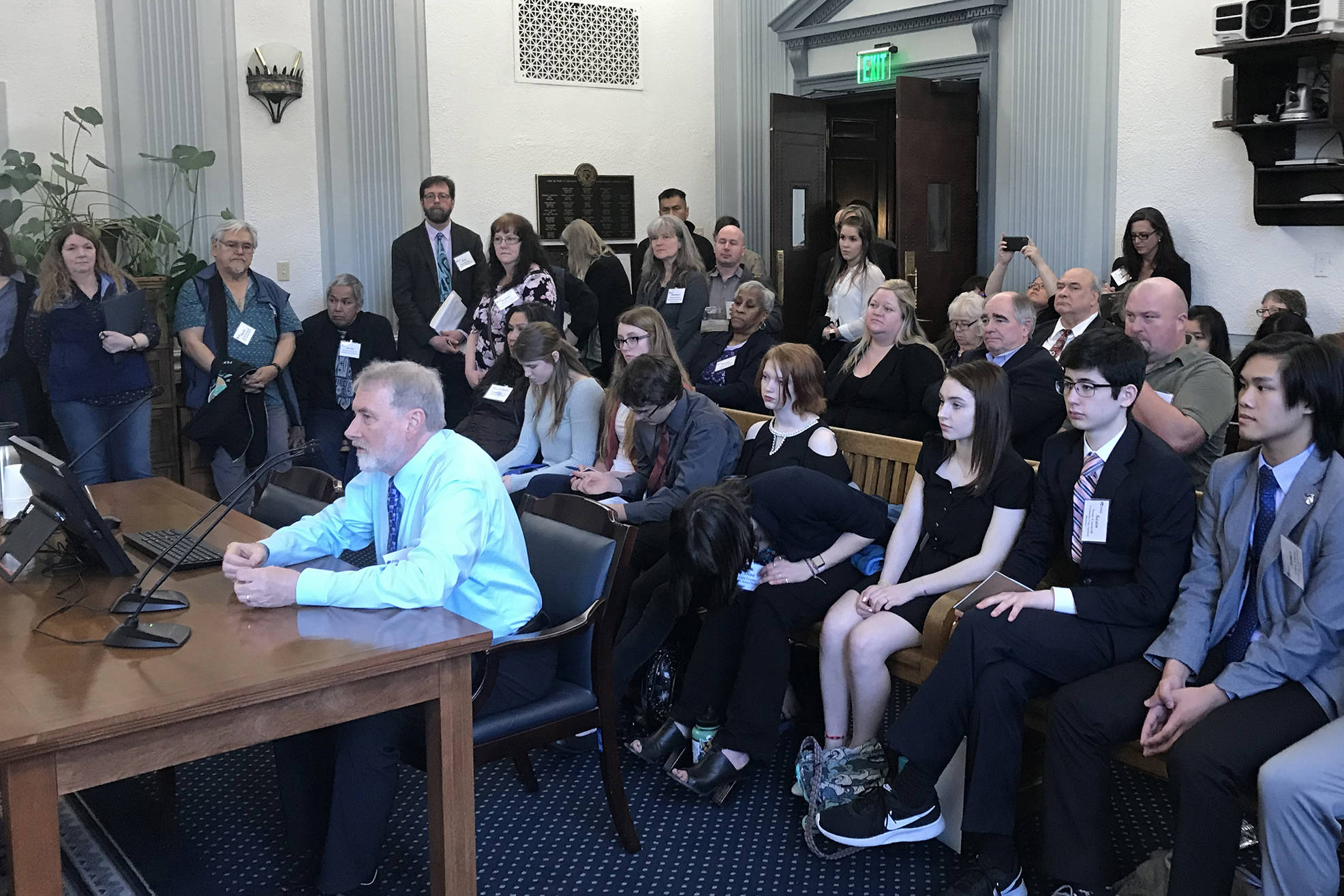Even teenagers are getting worried about budget cuts to education.
In an emotional meeting on Monday, high school students and school representatives from all over the state spoke passionately about the importance of teachers at a Q&A with senators.
“It’s not taking money; it’s taking people,” said Kevin Lubin, a student from Anchorage, to a standing-room only crowd of about 80 people. “It’s not a budget, not an approval — it’s students lives.”
While the students gave emotional testimonies pleading the cause of education to the senators and representatives at the meeting, some school board representatives played to the numbers, specifically the high cost of insurance and retirement for teachers across the state.
Pete Hoepfner, former Association of Alaska School Board President, spoke about how Cordova School District is experiencing budget strain.
[University of Alaska officials expect major budget cuts]
“A lot of it boils down to money,” he said. “One of the things that struck me recently was the health insurance, we’ve seen in the last four years a huge increase, 16 percent of our total budget is going to health insurance.”
It costs $369,000 a year for Cordova School District to pay for health insurance, he said. Per student, that’s $1,130 dollars. He said this is money that is being taken out of the classroom. He also mentioned how cuts to the ferry system affect the Cordova School District, because then schools have to fly in students or eliminate education services.
“I know there isn’t money out there, but these issues that come up are going to start hitting pretty hard in our school districts,” he said. “It’s getting to such a point now that it’s going to start hurting pretty bad.”
Some school districts said they were using a pool of city workers to decrease insurance costs, but Hoepfner said he hoped the state could do something to address the issue unilaterally.
Other issues brought up by audience members were the proposed $20 million cut to school districts in the governor’s proposed supplemental budget, rising costs of utilities for school buildings, internet bandwidth shortages, required certifications for people teaching Alaska Native languages and whether the formula used to determine school’s budgets is current and benefits all schools in Alaska, even in rural areas.
Juneau student Forrest Davis questioned the legislators about why the school’s budgeting formula hadn’t been revised in almost 20 years. Sen. Tom Begich, D-Anchorage, said the formula had withstood the test of time fairly well, according to an audit from two years ago that cost the state a quarter of a million dollars.
“We want to base (formula rewrites) on research and expert testimony,” said Sen. Gary Stevens, R-Kodiak, adding that perhaps it would be better to look at reworking the formula once session was over.
The meeting lasted only an hour, but legislators encouraged all those in attendance to reach out to them personally to elaborate.
“We are doing everything we can to stretch those dollars that we have,” said Wrangell School District Board President Aleisha Mollen. “When we come to you guys, I want you to know we’re doing everything that we can.”
• Contact reporter Mollie Barnes at mbarnes@juneauempire.com or 523-2228.

